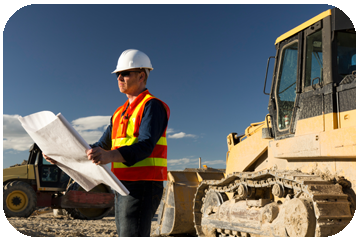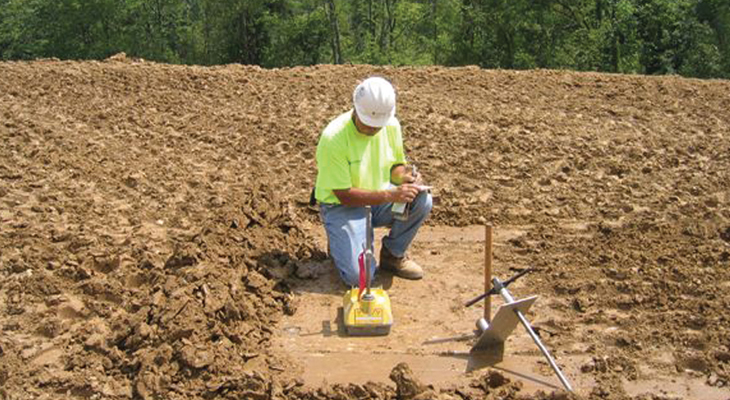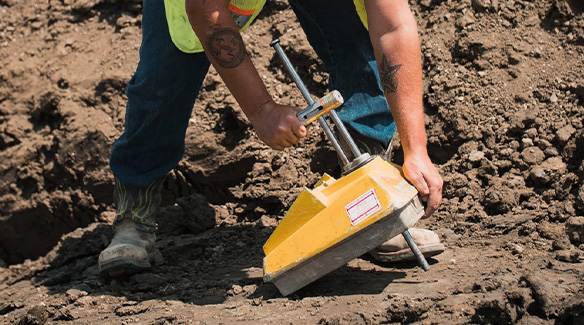The Role of an Engineer of Record in Ensuring Structural Integrity and Compliance
The Role of an Engineer of Record in Ensuring Structural Integrity and Compliance
Blog Article
Understanding the Crucial Role of the Geotechnical Industry in Modern Building Projects and Framework Growth
The geotechnical sector is a cornerstone of contemporary construction and infrastructure growth, providing essential understandings into dirt actions that directly influence project outcomes. Via sophisticated soil evaluations and cutting-edge engineering solutions, geotechnical specialists not just make sure structural honesty but additionally address sustainability issues in the middle of evolving environmental standards.
Value of Dirt Assessment
Dirt assessment plays a critical function in the geotechnical industry, working as the foundation for notified decision-making in construction tasks. Accurate dirt assessment is vital for figuring out the viability of a website for various kinds of frameworks, consisting of household homes, business structures, and bridges. By analyzing dirt make-up, strength, density, and moisture web content, engineers can expect prospective difficulties and mitigate risks connected with ground instability, disintegration, and settlement.
The analysis procedure usually entails a collection of tests and observations that offer crucial info about the subsurface problems. This information educates the layout and building and construction processes, making sure that frameworks are constructed on strong ground with appropriate support. Understanding the soil profile makes it possible for engineers to choose appropriate construction methods and materials, optimizing source application and lessening prices.
In enhancement to making certain architectural honesty, dirt assessment adds to ecological sustainability. By recognizing prospective contamination or unfavorable results on surrounding communities, designers can implement strategies to secure these all-natural sources. In general, complete soil evaluation is important in the geotechnical field, underpinning the safety and security, performance, and ecological duty of building projects.
Secret Geotechnical Strategies
A range of vital geotechnical techniques are utilized to boost the security and evaluate and efficiency of building sites. One foundational approach is dirt tasting and testing, which permits engineers to figure out the physical and chemical buildings of the ground. This information is critical for making educated choices concerning foundation layout and construction techniques.
One more vital method is site characterization, which entails the detailed evaluation of soil and rock problems through techniques such as borehole boring and in-situ screening. Techniques like Standard Penetration Examinations (SPT) and Cone Infiltration Tests (CPT) provide valuable information on soil stamina and stratigraphy.
Ground renovation methods, such as soil stabilization and grouting, are also important in enhancing the load-bearing capability of weak soils. These methods can minimize negotiation and enhance total site conditions.
In addition, incline stability evaluation is important for determining possible landslide threats and ensuring the safety of excavations. This evaluation frequently utilizes mathematical modeling and limit equilibrium approaches to forecast dirt habits under various conditions.
Including these geotechnical strategies right into building planning not just enhances job end results however additionally makes sure the long-lasting sustainability of infrastructure development.
Influence On Construction Safety

Moreover, efficient geotechnical engineering entails applying reduction techniques for identified risks. This may include soil stabilization techniques, keeping frameworks, or More Bonuses water drainage systems to alleviate hydrostatic pressure. By dealing with these elements, construction groups can minimize the likelihood of mishaps and enhance worker safety.
In addition, continuous surveillance of website conditions is essential during building. Geotechnical tools can give real-time data relating to ground motion and security, enabling timely interventions when required.
In significance, the geotechnical market plays a pivotal duty in guarding building jobs. By prioritizing ground stability and using strenuous evaluation methods, the geotechnical field not only secures the labor force but likewise adds to the long life and dependability of constructed infrastructure.
Sustainability in Geotechnical Practices

Additionally, geotechnical designers are currently employing advanced technologies, such as geosynthetics, which enhance soil security while decreasing the volume of material required. This not just preserves resources but likewise leads to much less waste generation (geotechnical engineers). The integration of lasting style concepts into geotechnical design urges using sustainable energy sources in construction processes, even more lowering carbon emissions
Furthermore, complete website evaluations are vital for identifying possible environmental impacts before building and construction begins. By carrying out these evaluations, geotechnical professionals can establish strategies that mitigate adverse effects, guaranteeing conformity with environmental policies. On the whole, the emphasis on sustainability within geotechnical practices not only contributes to the durability and resilience of framework yet additionally promotes a liable strategy to land and resource management. This commitment is important for promoting sustainable development in the modern-day building and construction landscape.
Future Trends in Geotechnical Engineering
Development is driving the future of geotechnical design, as emerging methodologies and modern technologies reshape the sector. The assimilation of innovative information analytics and man-made intelligence is readied to transform website examination website here and threat analysis, allowing designers to check my source make even more enlightened decisions based on real-time information. The use of geosynthetic products is gaining grip, using sustainable options that enhance dirt security and lower ecological influence - geo tech engineer.
Another significant trend is the fostering of automated and robot systems for surveillance and construction procedures. These technologies not just improve accuracy however likewise improve safety and security by minimizing human participation in hazardous environments. In addition, the application of Structure Information Modeling (BIM) in geotechnical design facilitates enhanced collaboration amongst stakeholders, optimizing task shipment and reducing expenses.
As climate change positions brand-new difficulties, the market is increasingly concentrating on strength and adaptability in style techniques, making sure infrastructure can hold up against severe weather occasions. Lastly, the ongoing fad towards sustainability will drive development in environment-friendly products and techniques, lining up geotechnical engineering with more comprehensive ecological goals. Jointly, these patterns will certainly shape a more effective, sustainable, and resistant geotechnical landscape for future projects.
Conclusion

The geotechnical sector is a foundation of modern-day building and facilities growth, supplying essential insights into dirt behavior that directly influence task end results. geo tech engineer.Dirt evaluation plays a vital role in the geotechnical sector, offering as the foundation for notified decision-making in construction jobs. On the whole, extensive soil analysis is essential in the geotechnical field, underpinning the safety and security, efficiency, and ecological duty of building and construction tasks
Construction safety and security is considerably affected by geotechnical methods, as the security and honesty of the ground straight impact the total safety and security of a building website.In conclusion, the geotechnical sector is indispensable in modern-day construction and framework development, providing vital assessments that guarantee structural integrity and safety.
Report this page